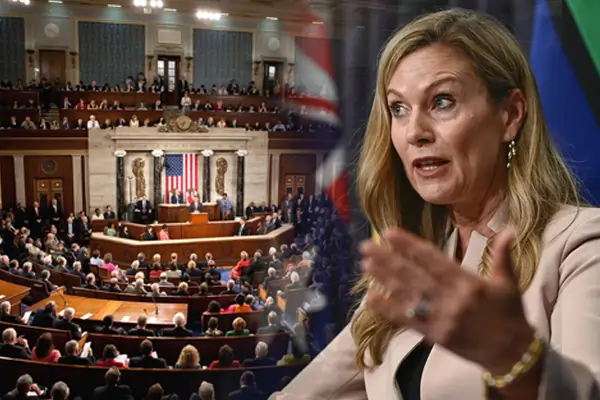House Judiciary Chair accuses Julie Inman Grant of threatening American speech through extraterritorial internet laws and policies.
A U.S. congressional committee has requested that Australia's internet regulator present testimony regarding Australia's technology & internet laws, referring to her as a "noted zealot for global takedowns" who "threatens the speech of American citizens." In a letter sent on November 18, House Judiciary Chair Jim Jordan, a Republican, accused Australian eSafety Commissioner Julie Inman Grant of collaborating with pro-censorship groups by associating with a Stanford University panel of "foreign officials who have directly targeted American speech and pose a serious threat to the First Amendment." Recently, a number of large internet businesses, mainly based in the United States, have opposed numerous Australian internet policies, including the ban on social media for children under 16.
Elon Musk, owner of X, has referred to Grant as a “censorship commissar,” regarding her attempts to restrict some social media posts in Australia. He called the youth social media ban, due to be implemented by Grant’s office on December 10, a surveillance tool. “As the primary enforcer of Australia’s (Online Safety Act) and noted zealot for global takedowns, you have a unique opportunity to provide serious information regarding the law's implications on free speech,” Jordan wrote to Grant. “Your broad interpretation of Australia’s OSA and your claim of extraterritorial jurisdiction to censor speech (or something resembling speech) outside of Australia does pose a direct threat to American speech.”
In the message, Jordan alluded to a pending case action from 2024 when the eSafety Commissioner ordered X to remove posts of a stabbing on a street in Sydney that law enforcement declared as terrorism. Ultimately, the agency discontinued the case. The letter stated that Grant spoke in September at Stanford and cited some attendees and panelists as officials from the list of worst offenders of extraterritorial censorship, including those from the European Union, Brazil, and other organizations.
.webp)










.webp)































.webp)
